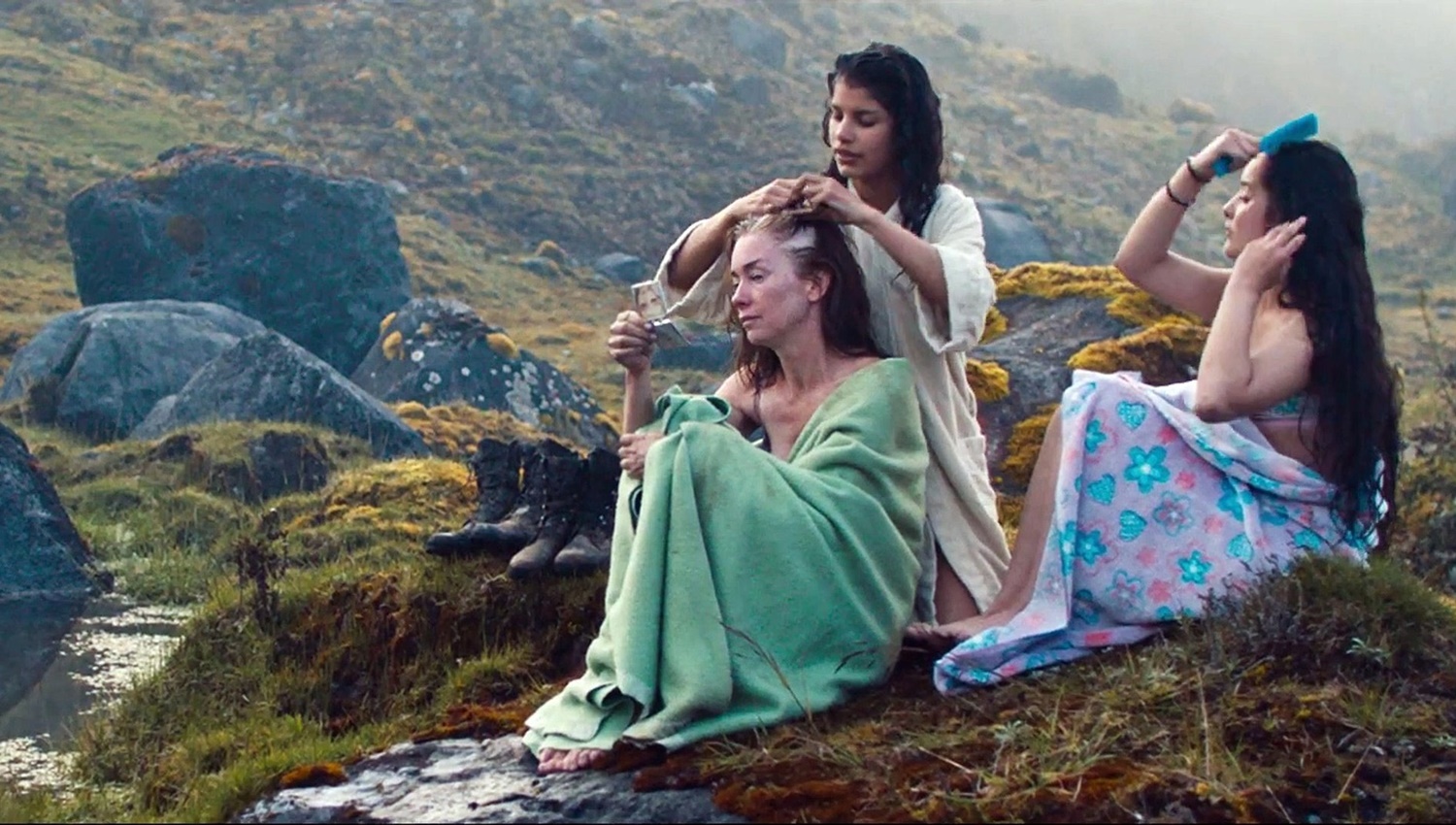Evidence of the growing popularity in international films can be seen this year as two of the films vying for the Academy Award’s five slots feature Hollywood actors. Monos is the official submission from Colombia and stars Moises Arias (Ender’s Game) and Julianne Nicholson (August Osage County) in two of the more prominent roles. The sophomore feature from Brazilian director Alejandro Landes lands in the vein of Lord of the Flies, where teenagers form their own hostile community on a remote mountaintop of South America. Landes script skirts around the larger moments a genre film might focus on to give the viewer a perspective that’s constantly being challenged by outside forces. Composer Mica Levi (Under the Skin, Jackie) offers another profound and unusual score, blending futuristic electronic sounds to create added tension.
Kidnapped by a group of young orphaned militants, Doctora Sara Watson (Nicholson) has been moved from various locations, constantly filming proof of lives videos. Orders for the Monos cult come from outside the group via radio communication or in person. Their leaders are chosen, as well partners and directives. As their locations are compromised the group, armed with weapons and training, will fight alongside adults called in to ensure the operation continues. Bigfoot (Arias) has been appointed leader, but the distracted nature of the children ranging from ages 14 to 20 continually allows for mistakes from duty. Sex and alcohol play a large part in the deterioration of leadership, providing Watson chances for escape.
The erratic filmmaking style keeps the viewer in suspense and times aggravation, as the narrative point of view skips around.
Gender and sexuality are often blurred within the characters of Monos, many appear androgynous and gener pronouns fluid. Landes script focuses on the instability of allegiance among children within a violent setting. While the subject matter is certainly brutal, he stays away from showing much of the violence on screen, opting for situational muck and grime instead. The narrative offers a string of minor details to create a larger picture. Denied the answers you expect; do they survive, does she escape, where are the leaders, where did they come from; within the context we get what we need. The erratic filmmaking style keeps the viewer in suspense and times aggravation, as the narrative point of view skips around.
Less proves to be somewhat more in Monos, Landas specifically styled experience is greater than the plot or story. Yet without seeing the full picture, it’s simultaneously a frustrating experience. Sharp editing cuts and unpredictable camera work evoke a concerted effort on the part of the filmmakers to give Monos a distinct look. Nicholson’s screen-time grounds the film more than any other character. She struggles with the idea of violence toward children as her only escape. Landas wants us aware of the elements in his story, which means emotional or empathy is a distractive device he isn’t interested including. Growing up in such an extreme environment is nothing new on film, Beasts of No Nation still marks one of the more unforgettable cinematic encounters in recent memory.
Final Thought
Filmmaker Alejandro Landes is the real star of Colombia’s foreign film submission despite casting two recognizable American actors.

